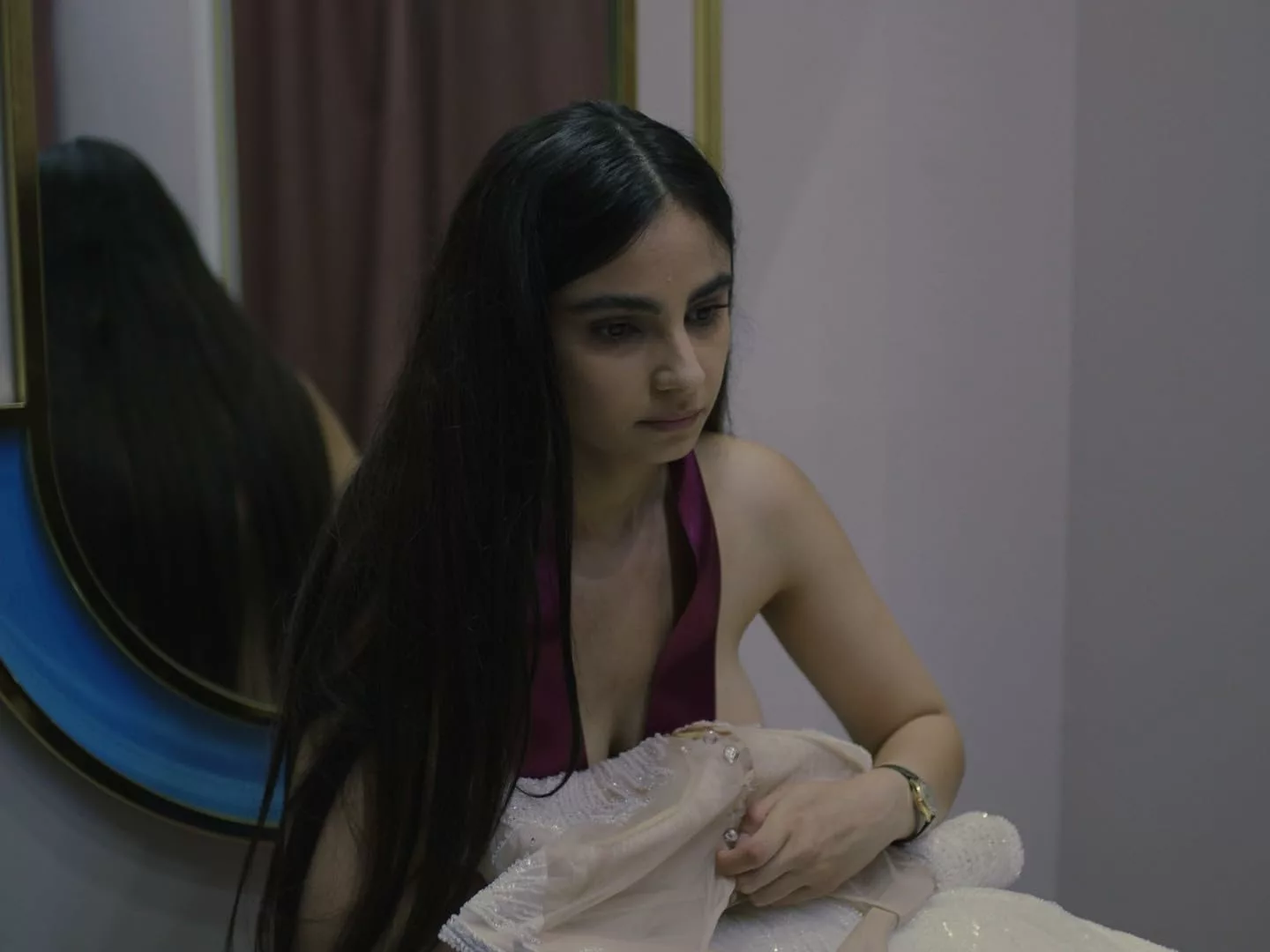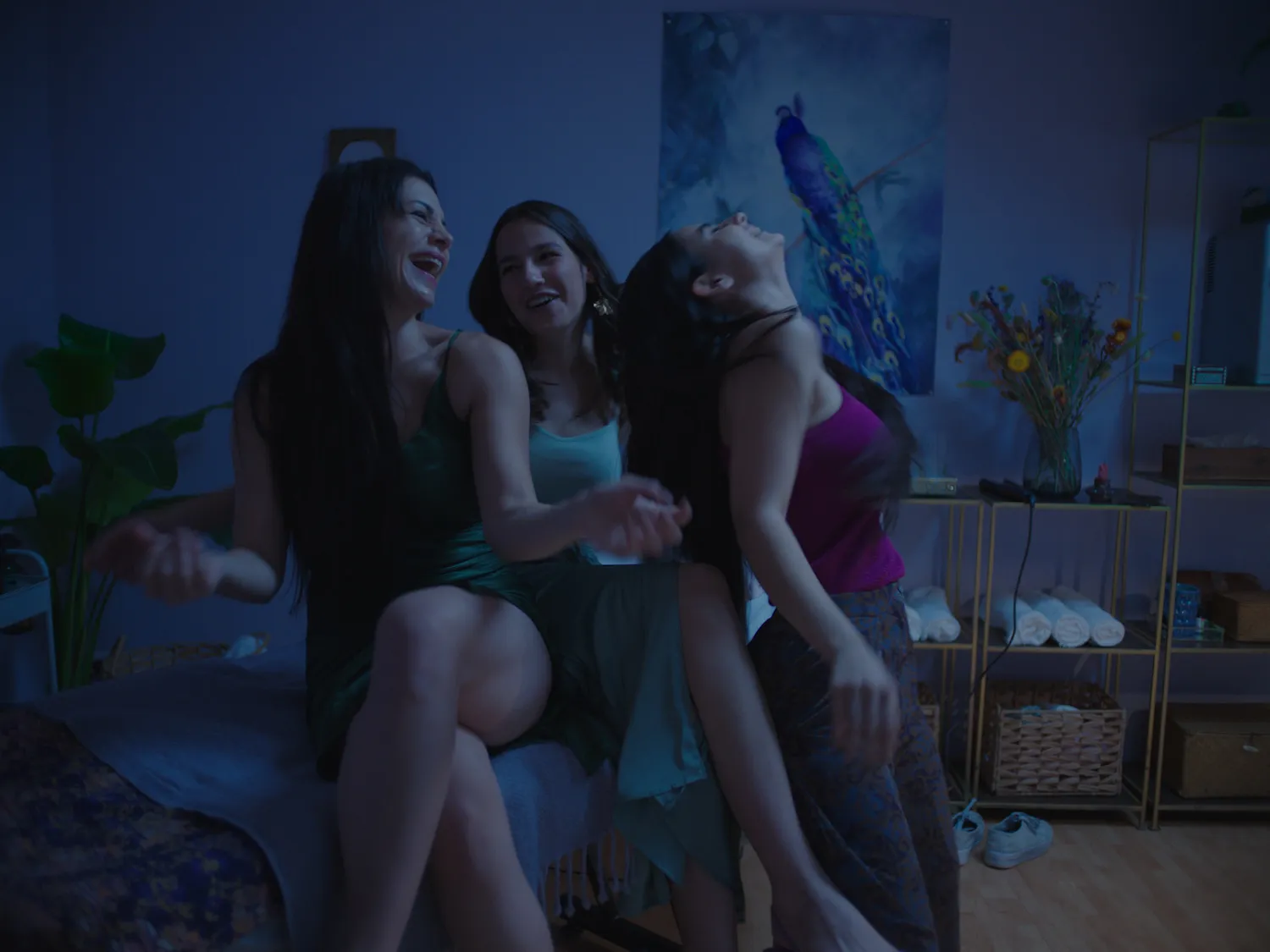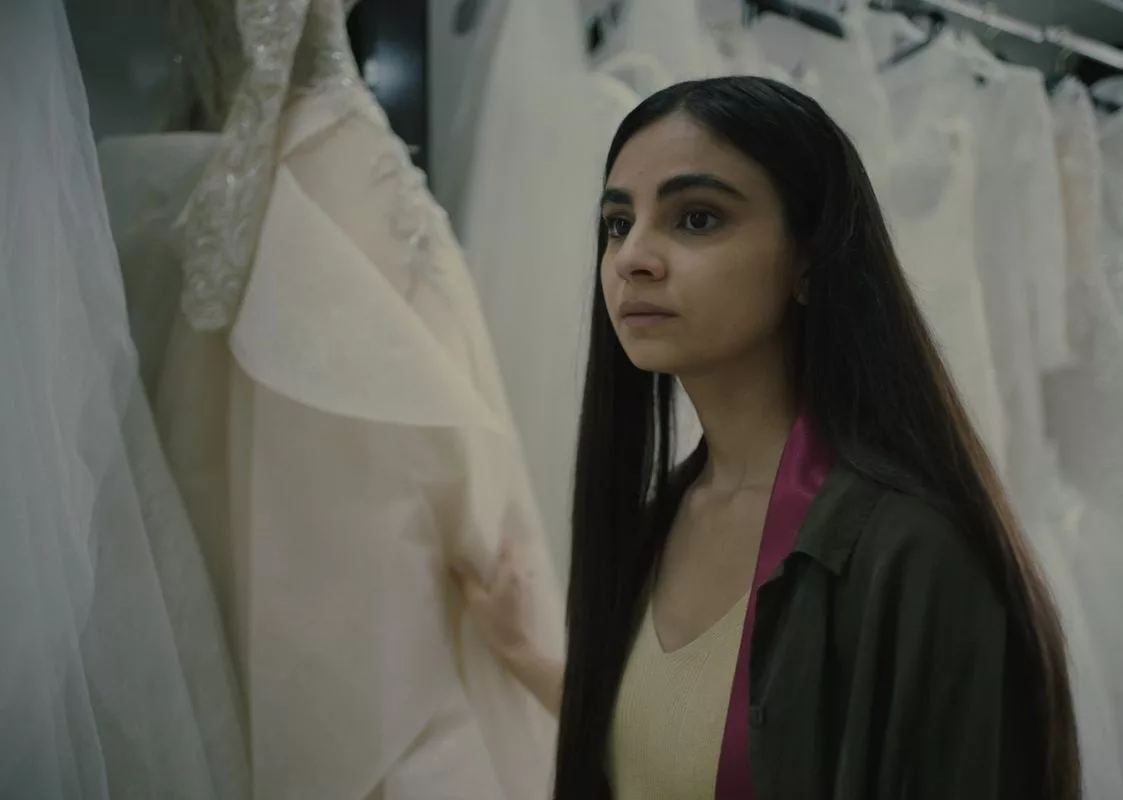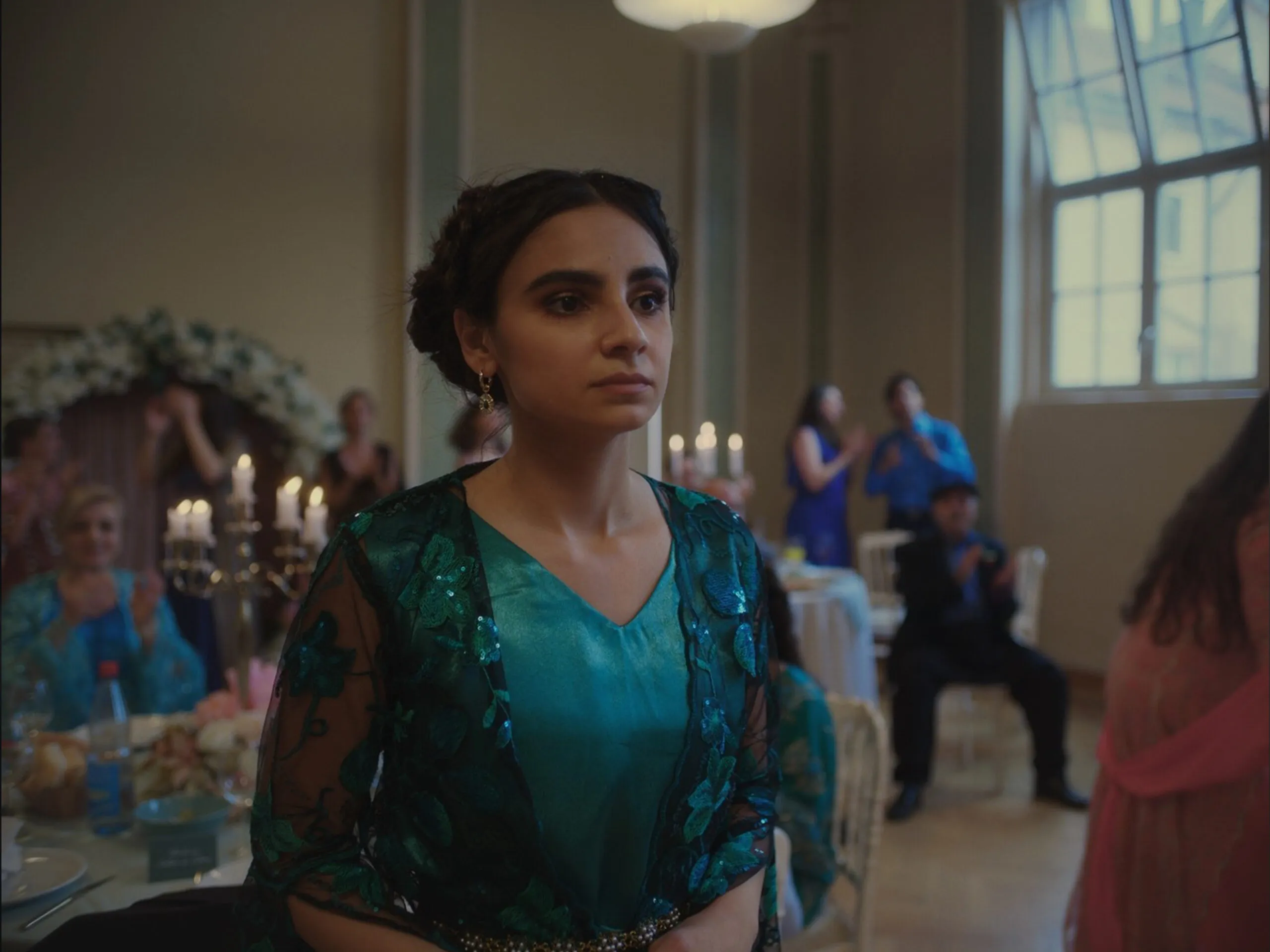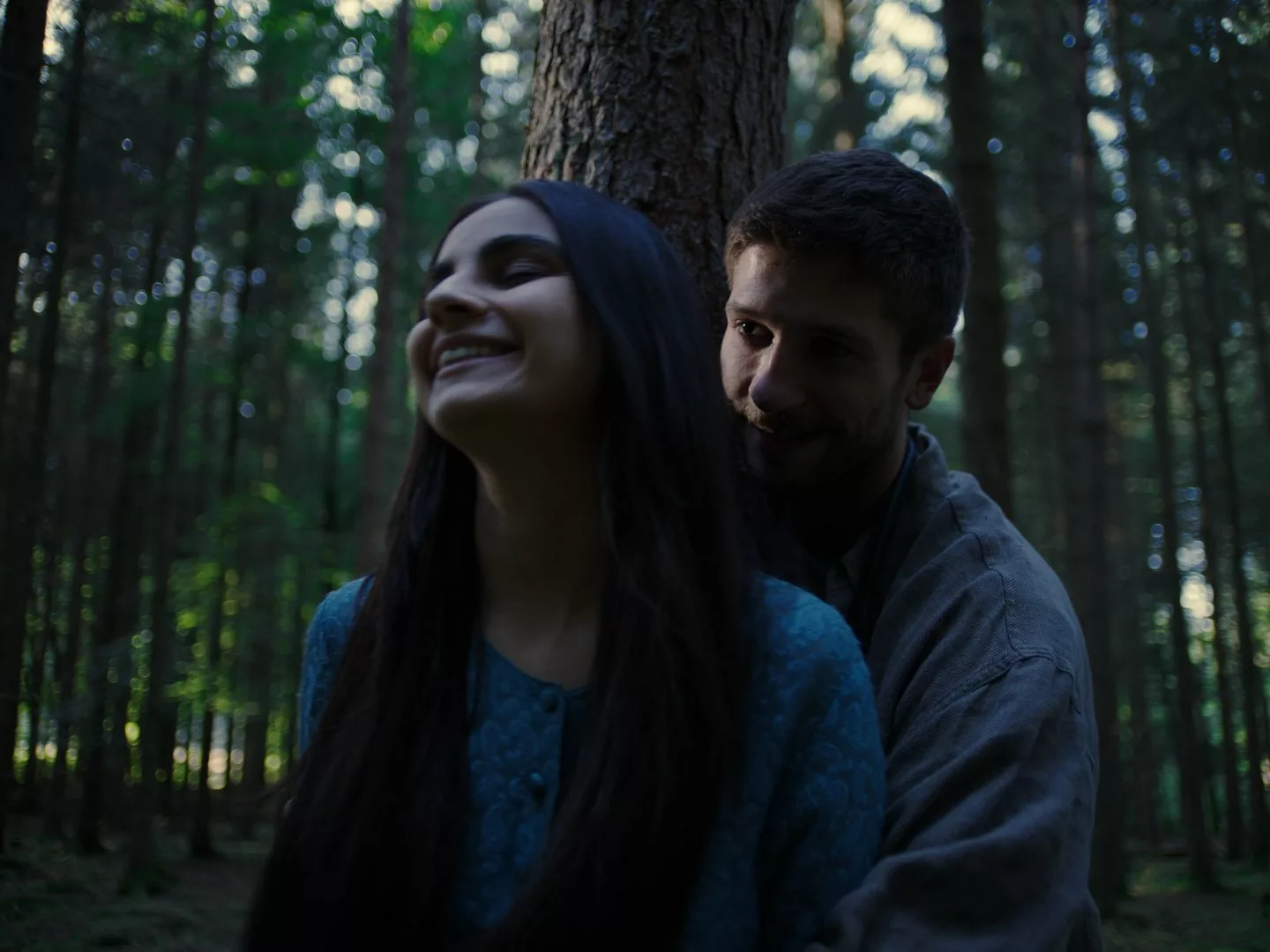Elaha, a new film from director Milena Aboyan, tells the story of a young German woman caught between personal freedom and cultural expectations. We meet Elaha, played vibrantly by Bayan Layla, just weeks before her wedding. She lives in a tight-knit Kurdish community where protecting one’s honor and avoiding shame are top priorities. But Elaha harbors a secret: she is no longer a virgin.
In their daily lives, Elaha and her friends navigate modern city life while respecting Kurdish traditions that bond them with family. Yet an unspoken rule governs relationships, restricting what women can share even with each other.
As her wedding nears, Elaha searches desperately for a solution to appear “pure,” as tradition demands. Elsewhere, her teacher, Miss Stella, played delicately by Hadnet Tesfai, encourages Elaha to consider what truly matters: being the woman of her own choosing.
Aboyan’s debut film sensitively portrays these complex layers of culture, family, and individual autonomy facing women today. Through Elaha’s journey, it explores how cultural identities evolve over generations within immigrant communities. Above all, it highlights the courage and creativity still needed worldwide for women to live freely on their own terms.
Exploring Identity and Tradition
Elaha lives with her family in a tight-knit German-Kurdish neighborhood. Here, cultural rituals bond the community but also impose rigid roles on women. Elaha adores her traditions yet also desires freedom like her German peers. Just weeks before her wedding, this balance is tested.
Elaha’s devoted mother maintains the home while her father strives for work, troubled when past credentials go unrecognized. Elaha assists him and holds a side job, saving diligently for marriage. Her charming fiancé, Nasim, seems like the ideal partner based on tradition but insolently demands obedience once wed.
A rare confidant emerges in Elaha’s teacher, Miss Stella. Heavy with child yet wise and thoughtful, Stella urges Elaha to reflect deeply—is this really the woman she aims to become? As secrets surface, jeopardizing the wedding, Elaha searches desperately for unlikely solutions.
Ever-inquisitive, Elaha encounters contrasting views. A doctor explains virginity as a social construct, not biology. Yet family and community enforce this strictly, defending tradition over truth or empathy. Facing the prospect of inspection and censure, Elaha spirals into isolation and danger.
Through courageous performances and nuanced storytelling, Elaha portrays identity as a balancing act across generations. By chronicling one woman’s struggles to find her place with compassion, it highlights universal themes of empowerment, autonomy, and cultural progress woven into daily life. Above all, Elaha’s journey reminds us that personal truth and community spirit need not be opposed but can inspire each other to greater understanding.
Delivering Difficult Drama
This film stands on the strengths of its performers. Bayan Layla brings Elaha to life in all her contradictions—joyful and dutiful, yet inwardly questioning. Layla delivers intricate layers of emotion through expressive features and longing gazes. Elaha’s internal conflict plays out fluidly across her face.
Supporting players match Layla’s nuance. Derya Durmaz imbues Elaha’s mother with fierce devotion and cold ruthlessness, leaving an indelible impact. As teacher Miss Stella, Hadnet Tesfai brings calm guidance, gaining Elaha’s trust through empathy and wisdom. These women felt deeply real, their motivations resonating on visceral and intellectual levels alike.
Director Milena Aboyan watches her characters’ worlds unfold through a subtle lens. She frames intimate moments in observantly composed shots, inviting reflection on cultural undercurrents. At times, an almost poetic quality emerges through dreamlike imagery. Yet Aboyan never distracts from her protagonists’ raw emotional journeys.
This balancing act of compassion and artistry gave Elaha the complexity its urgent story deserved. Capturing cultural specificity without reducing characters to stereotypes, Aboyan brought the personal and political into dialogue. Her talent for nuance earned deep engagement from viewers, holding attention through difficult scenes and ambiguous resolutions.
In spotlighting a very real issue through performances of grit and grace, Elaha transports audiences. Its stars and filmmaker advance difficult dialogues not through accusation but through empathy and understanding. Their work deserves praise and close study for how it humanizes information on screen.
Navigating Culture and Self
Elaha delves into much more than hymen reconstruction; it’s a journey of discovering who you are amid clashing values. Milena Aboyan crafts a story that’s both intimate and wide-reaching, spotlighting universal tensions through one woman’s experience.
Elaha finds herself pulled between modern and traditional ways. She enjoys time with friends yet faces pressure to adhere strictly to rules. University is never discussed, despite her potential. Freedom and possibility exist, yet societal expectations box her in. Through it all, Elaha’s heart remains with her community; she simply wants space to be herself.
Aboyan presents patriarchy not as men alone but as a far-reaching system upheld even by women. Elaha’s mother sees her daughter’s purity as reflecting the family’s worth. Nasim believes controlling Elaha proves his authority. Tradition demands a test of Elaha’s virtue, yet virtue stems not from physical acts but from inner strength.
Subtly, the film examines how oppression functions—through policing women’s bodies, censoring their speech, and limiting their power over their lives. But Elaha’s fight is not against people but against predetermined roles. She seeks autonomy within connection, redefining what community means on her own terms.
What resonates is Elaha’s desire to belong amid differences. Cultural identity emerges as a complex allegiance rather than traits alone. One can honor tradition differently as times change. By turning society’s gaze inward, Elaha finds the courage to walk her own path, embracing all facets of herself among those who see her humanity.
Her journey is stirring in its familiarity. Aboyan’s gift is eliciting empathy by facing hard truths tenderly, with patience, and with care for the variety within us all. Elaha is a call for understanding in an age that asks much of those between worlds.
Origins of Understanding
Director Milena Aboyan brought unique insight to Elaha’s story. Of Armenian-Kurdish descent herself, Aboyan understood the challenges of straddling cultures. Living between worlds fed her nuanced view of oppression’s complexity.
Aboyan began developing the script years ago, seeing echoes of her experiences in Kurdish friends’ lives. She aimed not at condemnation but at empathy, crafting characters with care, dignity, and respect. Early festival audiences responded enthusiastically.
Elaha premiered at the Berlinale, impressing with its sensitive portrayal. Audiences relate to the intimacy of Aboyan’s gaze in one woman’s journey. Critics praised her deft exploration of identity, tradition, and freedom’s interwoven forces beneath oppression’s surface.
however, fixated on specific cultures alone. But Aboyan’s message was universal: no group has a monopoly on rigid roles. Patriarchy operates systemically through all societies, upheld even by well-meaning acts until redefined.
Elaha resists simplification. Its power lies in noticing oppression’s roots beyond any single source. By turning criticism toward societal conditioning rather than people and giving space for tradition’s reimagining, Aboyan opens understanding. Her thoughtful direction ensures Elaha will continue sparking both empathy and thought in all seeking deeper connection.
Resisting Reduction
Some of Elaha’s most impactful scenes show her transition from a carefree spirit to a suffocated soul. Early on, she dances freely at a wedding, only to be scolded for embracing life. Here, her shackles first become visible, though optimism still glows within.
More troubling is when family members demand a “virginity exam,” reducing Elaha to an object of inspection. Their well-intentioned love blinds them to their dehumanization. Between the medicalization of womanhood and threats of honor killings, Elaha finds little room to be her full self without peril.
Her teacher, Stella, provides a rare ray of understanding. Asking introspective questions rather than making accusations, Stella sees Elaha as a multidimensional person, not a symbol. Their talks challenge norms diplomatically, leaving space for Elaha’s journey rather than coercion.
Tragically, patriarchy’s weight crushes even this lifeline. By the film’s close, Elaha surrenders her fire, physical and spiritual, having exhausted all options in a system rigged against her freedom. No villain exists, yet victimhood remains, for societies and salvation lie beyond any individual.
Rather than oversimplify oppressions as inherent to one culture, the film probes patriarchy’s deep roots across all communities. It raises thought-provoking queries, resisting a reduction of women’s experiences or the prescription of singular solutions. In her nuanced portrayal of an impossible situation, Elaha moves us without easy catharsis, honoring the complexity of the human condition. Through a compassionate lens, it brings audiences closer to understanding lives most different from our own.
The Power in Elaha’s Struggle
This film holds power by illustrating big issues through small, lived moments. We connect to Elaha because Aboyan sees her not as a symbol but as a as a full human—hopeful yet hemmed in by forces beyond her control. Though darkness looms, light persists so long as compassion exists between people.
Stella represents this, quietly standing with Elaha in her journey to self-ownership. Their talks breathe life into questions society prefers left unasked. Through empathy, not accusations, Stella helps Elaha glimpse what freedom could feel like—a taste that makes loss all the sharper.
Layla and Aboyan bring Elaha’s plight alive with a quiet, haunting force. No lecture, but a glimpse of reality for women whose worth depends on standards no one can fully meet. We ache for Elaha not because of her flaws but because her fight is universal: to live as our authentic selves and pay life’s tolls on our own terms.
In crafting intimate portraits where systemic oppression breathes beneath tender family bonds, Aboyan proves to be a director who sees society and people in all their fullness. Elaha endures not by oversimplifying complex woes but by embracing life’s difficulties with empathy, leaving audiences to walk in another’s shoes. Such stories need telling, and in Aboyan, they’ve found an artist who tells them deftly and durably. Her debut shows a filmmaker whose insight into human hearts will surely deepen.
The Review
Elaha
Through compassionately realistic characters and intimate depictions of oppression's quiet toll, Elaha proves a viscerally moving portrait of fighting to live freely within constricting rules not of one's making. While darkness surrounds, glimmers of empathy offer hope so long as humanity persists in standing with one another.
PROS
- Powerful lead performance from Bayan Layla
- Sensitive direction that avoids simplistic portrayals
- Timely exploration of the oppression women face
- Feels grounded while touching on universal themes
- A moving depiction of navigating identity and freedom
CONS
- Storytelling could have been tighter at points.
- The balance of raw emotions and artistry is not fully realized.
- The weight of issues isn't maximized for full impact.
- More could have been done to lend nuance to side characters.
- The ending feels somewhat foregone rather than fully earned.









































